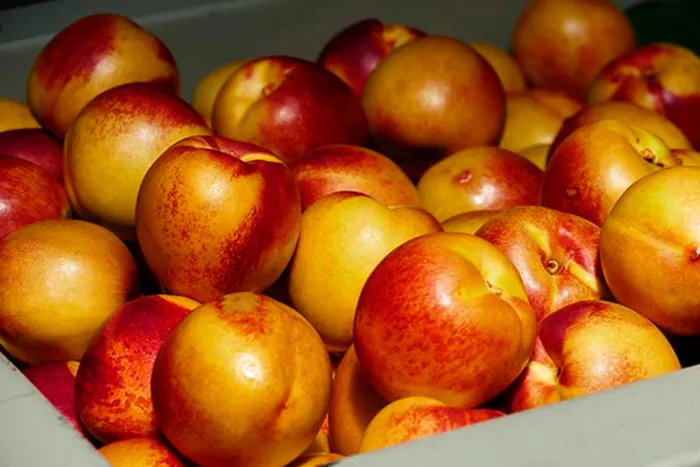
Agricultural associations have welcomed the Department of Agriculture (DOA) signing of the Stone Fruit Trade protocol with China.
Image: File
South Africa’s agricultural sector has welcomed a breakthrough trade agreement that could open lucrative opportunities for local fruit producers.
The Department of Agriculture (DoA) announced on Wednesday that Minister John Steenhuisen and China’s Minister of the General Administration of Customs (GACC), Sun Meijun, signed a landmark Stone Fruit Trade Protocol in Shanghai.
The agreement, which covers fruits such as apricots, peaches, nectarines, plums, and prunes, is expected to unlock an estimated R400 million in export value over the next five years.
Wandile Sihlobo, chief economist at the Agricultural Business Chamber (Agbiz), said the deal marks a significant step in deepening South Africa’s access to the Chinese market — an increasingly vital destination for local produce.
“We must work to broaden South Africa’s agricultural access to China. South Africa remains a small share in the Chinese list of agricultural suppliers, at about 0.4%," he said.
"However, this current access in China is vital for the wool and red meat industry. China accounts for roughly 70% of South Africa’s wool exports. The fruit industry must be the next to see broader access.”
Sihlobo highlighted that South Africa’s agricultural export policy has long been rooted in diversification. In 2024, South Africa exported a record $13.7 billion (R238 billion) in agricultural products, a 3% increase from the previous year.
Africa remained the country’s largest market, absorbing 44% of exports, followed by Asia and the Middle East (21%), the EU (19%), the Americas (6%), and other regions including the UK (10%).
“China offers an opportunity to continue with export diversification. China is among the world’s leading agricultural importers, accounting for 9% of global agricultural imports in 2024 (before 2024, China had been a leading importer for many years. The US was the world’s leading agricultural importer in the same year, accounting for 10% of global imports,” he said.
“The EU was South Africa’s third-largest agricultural market, accounting for a 19% share of the market. The Americas region accounted for 6% of South Africa’s agricultural exports in 2024. The rest of the world, including the United Kingdom, accounted for 10% of the exports.”
Francois Rossouw, CEO of Southern African Agri Initiative (Saai), described the new trade protocol as a “positive and timely development” that could strengthen the country’s farming economy.
“Access to China’s massive consumer market could help offset some of the losses caused by U.S. tariffs and bring in an estimated R400 million over the next five years. It reflects a smart, long-term diversification strategy that we’ve been advocating for—one that reduces our reliance on a few export destinations and strengthens ties with emerging markets in Asia.”
However, Rossouw cautioned against viewing this as a one-for-one replacement for the US market.
“The US has historically been a high-value destination for South African premium fruit, wine, and nut exports, supported by long-standing trade relationships, brand trust, and logistical efficiencies," he said.
"The Chinese market, while vast, comes with its own challenges including longer shipping routes, stricter phytosanitary requirements, and competitive pricing pressures from other exporting countries.”
Rossouw added that while the China deal is a step forward and offers new growth potential, it should not come at the expense of our existing relationships with the United States and other traditional partners.
“A balanced, multi-market approach is what will ultimately safeguard our farmers’ livelihoods and the long-term resilience of the agricultural economy.”
BUSINESS REPORT